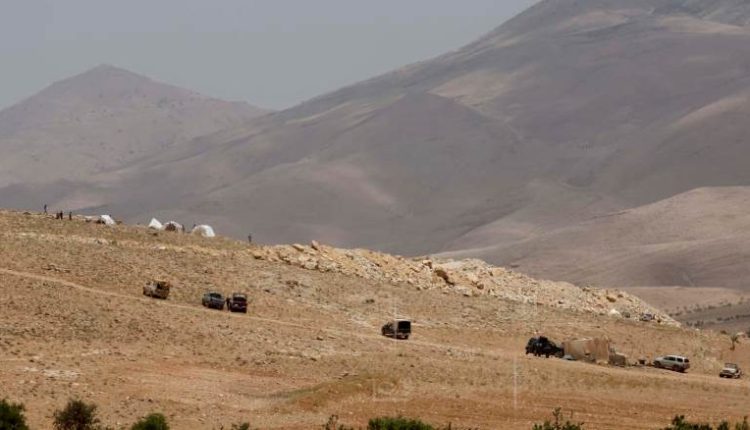Israel Kills Hezbollah Weapons Coordinator in Airstrike Near Syrian Border
By Kardo Roj
DAMASCUS, Syria (North Press) – The Israeli military announced on Friday that it had killed a Hezbollah weapons coordinator in an airstrike on Lebanon’s northeastern border region. The attack, which took place on Thursday in Hermel, targeted Mohammad Mahdi Shahin, whom Israel accused of facilitating arms transfers from Syria to Lebanon.
In a statement, the Israel Defense Forces (IDF) said that Shahin was a key member of Hezbollah’s Bekaa Valley unit, responsible for overseeing weapons smuggling operations. The strike comes amid escalating tensions between Israel and Hezbollah, with both sides exchanging attacks despite an official ceasefire agreement.
Lebanon’s National News Agency (NNA) reported that two people were killed in the Israeli airstrike, which targeted a vehicle in Hermel. While Israeli sources confirmed Shahin’s death, Hezbollah has yet to issue an official statement regarding the incident.
Additionally, the IDF said it struck a Hezbollah observation post in Ainata, southern Lebanon, as part of ongoing operations aimed at disrupting the group’s military capabilities. The Lebanese media also reported that an Israeli drone attack targeted an area near the tomb of former Hezbollah leader Hashem Safieddine in Deir Qanoun al-Nahr, causing material damage but no casualties.
These attacks highlight Israel’s continued military operations against Hezbollah across Lebanon, despite the ceasefire agreement that was meant to de-escalate cross-border hostilities.
Tensions between Israel and Hezbollah have been steadily escalating since the outbreak of the Israel-Gaza war in October 2023. The conflict has spilled over into southern Lebanon, where Hezbollah and Israeli forces have engaged in near-daily exchanges of fire.
While a ceasefire agreement was brokered with international mediation, both sides have accused each other of violating the terms. Israel claims Hezbollah continues to launch rockets and deploy drones into northern Israeli territory, while Hezbollah accuses Israel of persistently carrying out airstrikes deep into Lebanese territory.
The latest airstrike on Hermel underscores Israel’s strategy of targeting Hezbollah’s logistical networks, particularly its supply routes between Syria and Lebanon. Israel has long accused Iran of supplying Hezbollah with advanced weaponry via Syria, a claim both Tehran and Hezbollah deny.
Lebanese officials have condemned the Israeli airstrikes as violations of the country’s sovereignty and the ceasefire agreement. Meanwhile, international mediators, including the United Nations, have called for restraint to prevent a broader conflict in the region.
Analysts warn that continued Israeli strikes inside Lebanon, particularly targeting high-ranking Hezbollah operatives, could provoke a stronger response from the group. While Hezbollah has largely refrained from escalating the situation into a full-scale war, leaders within the organization have previously stated that any targeted killings of key members would not go unanswered.
As tensions remain high, diplomatic efforts to enforce the ceasefire and prevent further military escalation are expected to continue. However, with ongoing Israeli operations and Hezbollah’s growing arsenal, the possibility of renewed large-scale conflict looms over the region.

